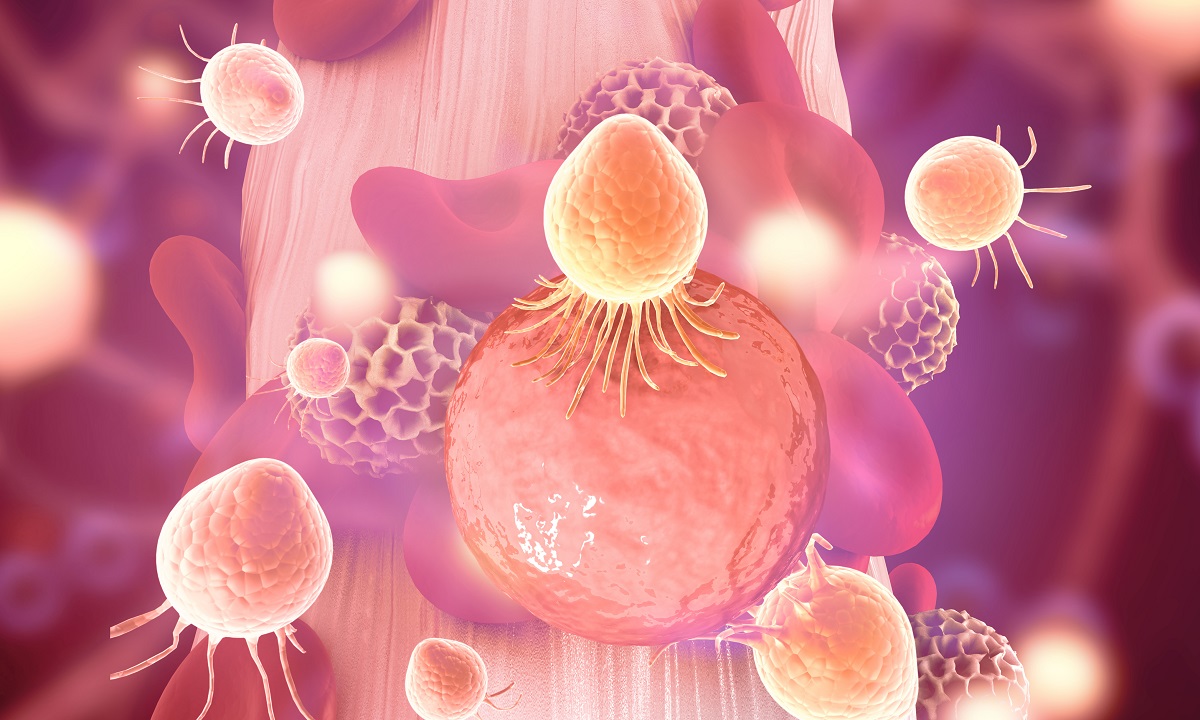KEY TAKEAWAYS
- The PEARLS phase III trial aimed to assess pembrolizumab’s impact on DFS in early NSCLC definitively.
- The dual primary endpoints were DFS and PD-L1.
- Adjuvant pembro boosts early lung cancer DFS overall but needs refinement for high PD-L1 expressers.
Previous analysis of pembrolizumab as adjuvant therapy in early-stage lung cancer (NSCLC) showed it improved disease-free survival (DFS) in all patients but not in those with high PD-L1 expression (TPS ≥50%). For this study, researchers aimed to definitively assess pembrolizumab’s impact on DFS in early NSCLC.
Eligible patients aged 18 or older, with completely resected stage IB (T ≥4 cm), II, or IIIA NSCLC (AJCC v7), ECOG PS 0 or 1, and available tumor samples for PD-L1 testing, were offered optional adjuvant chemotherapy for up to 4 cycles per guidelines. Participants were randomized 1:1 to receive either pembrolizumab 200 mg or placebo every 3 weeks for 18 doses (approximately 1 year).
The dual primary endpoints were DFS in the intention-to-treat (ITT) population and the PD-L1 TPS ≥50% population. The significance boundary for the latter was set at P = 0.01038 with an alpha value of 0.0125.
Among 1,177 patients in the ITT population, 590 received pembrolizumab, and 587 received placebo. With a median follow-up of 51.7 months (range, 32.7–84.2), DFS did not show significant improvement with pembrolizumab compared to placebo in the PD-L1 TPS ≥50% population (HR, 0.83; 95% CI, 0.59–1.16; P = 0.13). The 4-year DFS rates (95% CI) were 57.0% (47.9%–65.1%) for pembrolizumab and 49.1% (39.8%–57.8%) for placebo. Results in the ITT and adjuvant chemotherapy populations were generally consistent up to IA2.
Grade ≥3 all-cause adverse events(AEs) occurred in 34.1% (198 pts) of the pembrolizumab group and 25.8% (150 pts) of the placebo group. Grade 5 adverse events were reported in 1.9% (11 pts) and 1.0% (6 pts). Immune-mediated adverse events and infusion reactions were observed in 39.1% (227 pts) and 13.1% (76 pts) for pembrolizumab and placebo, respectively.
The results reported that adjuvant pembrolizumab boosts early lung cancer DFS overall but needs refinement for high PD-L1 expressers.
Source: https://cslide.ctimeetingtech.com/immuno23hybrid/attendee/confcal/show/session/2
Clinical Trial: https://clinicaltrials.gov/study/NCT02504372
Besse B. Adjuvant Pembrolizumab versus Placebo for Early-Stage NSCLC After Resection and Optional Chemotherapy: Updated Results From PEARLS/KEYNOTE-091. Presentation Number 120MO. Lecture Time 09:25 – 09:30.



